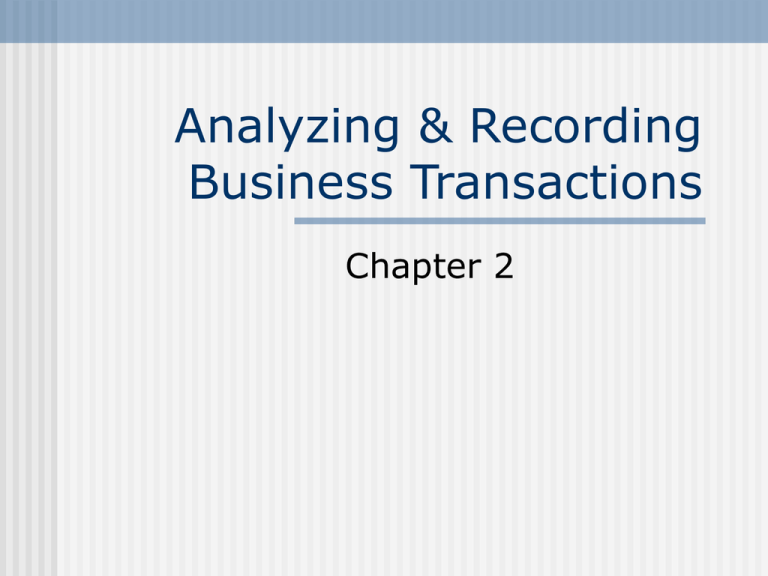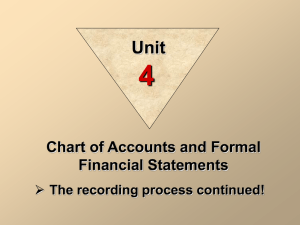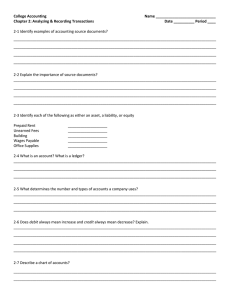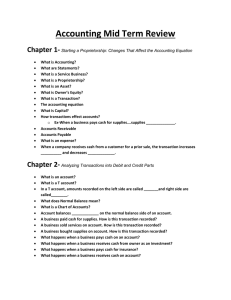Analyzing & Recording Business Transactions
advertisement

Analyzing & Recording Business Transactions Chapter 2 Source documents Identify and describe transactions and events entering the accounting process. Account Is a record of increases and decreases in a specific asset, liability, equity, revenue or expense Ledger Is a record containing all accounts used by a company Assets Cash Accounts receivable What customers owe us Note receivable Prepaid Accounts Supplies Equipment Liabilities Accounts payable Money owed to suppliers Notes payable Unearned revenue Deposits from customers Equity Common Stock Dividends Shareholders investment in the business Distributions of income to shareholders Retained Earnings Chart of Accounts List of an accounts a company uses and includes an idea. 101-199 Assets 201-299 Liabilities 301-399 Equity 401-499 Revenues 501-599 Expenses T- Accounts Debit Credit Left side Right side Accounting Equation Assets DR CR = Liabilities DR CR + Equity DR CR Double entry accounting: each transactions affect, And recorded in, at least two accounts Debits = Credits Journal Journal Gives a complete record of each transaction in one place Journalizing Process of recording transactions Posting Process of transferring journal entry info to the ledger Journal Date Account PR Debit Credit Journal Entries Go to excel worksheet Transactions Shareholder invests in the business $30,000 in cash Co pays $2,500 cash for supplies Co pays $26,000 cash for equipment Co purchases $7,100 of supplies on account ( on credit) Co provides consulting services and collects $4,200 cash Transactions Co pays for $1,000 cash for rent Co pays $700 cash for salaries Co provides consulting services of $1,600 and bills the customer Co receives $1,600 cash from the client billed Co pays $900 on account Co pays dividends $1,000 Transactions Co receives $3,000 cash in advance Co pays $2,400 cash for insurance for one year Posting to the ledger Record the transactions into ledger by account name Prepare a TRIAL BALANCE List of accounts and balances



